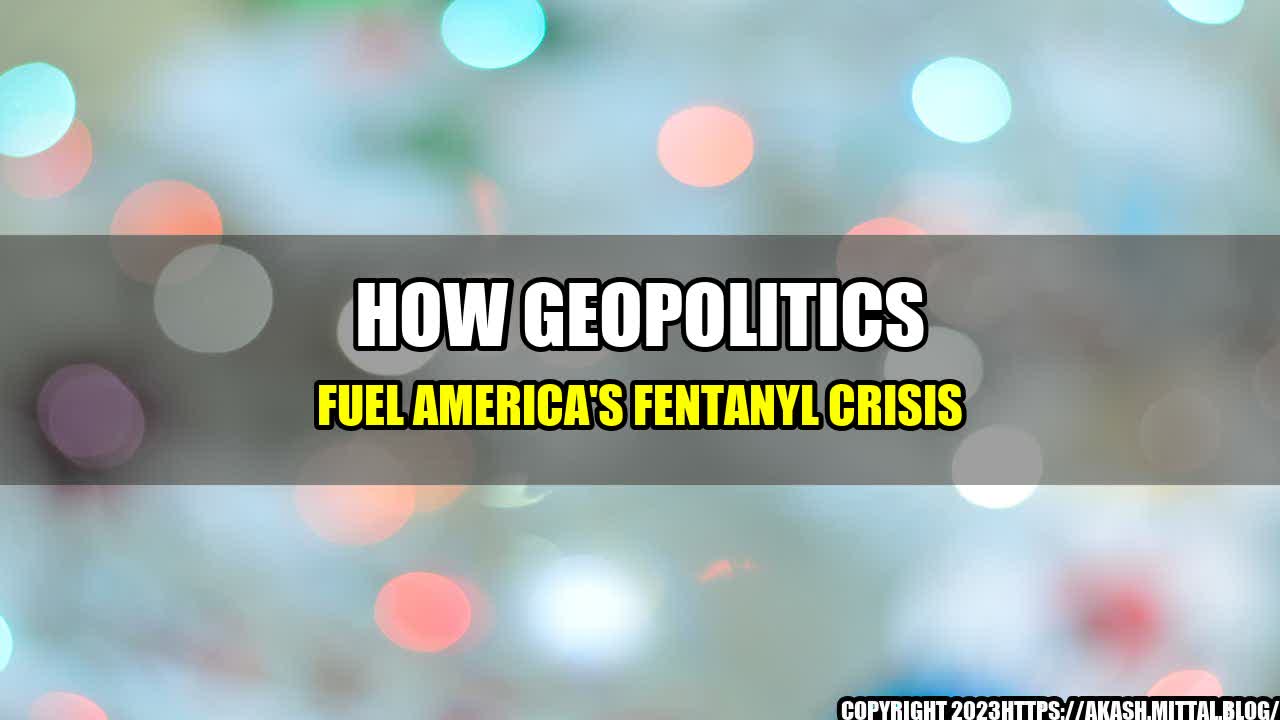
It was a warm summer evening in the small town of Swoyersville, Pennsylvania, when Mike got the phone call from his son's girlfriend. "I can't wake him up," she said. "Something's wrong."
Mike knew that his son, Tyler, had been struggling with addiction. He had started with prescription painkillers, but eventually turned to heroin. Like many parents facing a similar situation, Mike had done everything in his power to help his son, including sending him to rehab and offering him a place to live while he got back on his feet.
But on that night in July, it was too late. Tyler had overdosed on fentanyl, an incredibly potent synthetic opioid that has become a major driver of America's opioid epidemic.
It's a story that's all too familiar in America today. Fentanyl is responsible for more than 30,000 deaths each year, making it the leading cause of overdose deaths in the country. And while many people understandably focus on the public health aspects of the crisis, there's another side to this story: geopolitics.
At its core, the fentanyl crisis is rooted in the global drug trade, which is controlled by criminal organizations that are often based in developing countries. These groups have learned how to use the internet and shipping networks to move massive quantities of illicit drugs around the world, and fentanyl is a particularly attractive product for them.
In part, that's because fentanyl is incredibly powerful. It's estimated to be 50 times stronger than heroin, meaning that a tiny amount can cause a fatal overdose. That potency also makes it easy to ship and conceal. Criminal organizations can create synthetic forms of the drug that can be easily transported in small packages, making it difficult for law enforcement to intercept them.
But there's another reason why fentanyl has become such a popular drug for criminal organizations: it's incredibly profitable. Because the drug is so powerful, it's also incredibly cheap to produce. That means that criminal organizations can make huge profits by selling it on the black market.
And that's where geopolitics comes into play. Many of the countries where these criminal organizations operate are facing economic or political instability, which makes the drug trade an attractive option for people looking to make money. In places like Mexico, for example, where drug-related violence has become a major problem, criminal organizations have become incredibly powerful and have taken over large parts of the economy.
Moreover, some countries like China, from where bulk chemicals are shipped to countries like Mexico and USA, have loose laws that make it easy for manufacturers to create fentanyl. This has made China a major source of fentanyl. Chinese manufacturers export the drug to Mexico, where it's often mixed with other drugs like heroin and then smuggled into the United States. In some cases, Chinese manufacturers even ship fentanyl directly to the US.
The impact of these trends is clear when you look at the data. According to the National Institute on Drug Abuse, there were more than 83,000 drug overdose deaths in the United States in the 12 months ending in July 2021. Fentanyl was involved in more than 60% of these deaths, up from 36% just three years ago.
The problem is particularly acute in certain parts of the country. The Centers for Disease Control and Prevention (CDC) has identified several "hotspots" where fentanyl overdoses are particularly common, including the Northeast, Midwest, and West Coast.
Perhaps the most shocking statistic is the sheer amount of fentanyl that's being seized by law enforcement. According to the Drug Enforcement Administration, the amount of fentanyl seized by customs and border protection officers has increased by more than 4,000% since 2013.
So what does all of this mean? Here are three key takeaways:
Ultimately, the fentanyl crisis is a complex and multifaceted problem that will require a comprehensive response. By understanding the geopolitical factors that are driving this crisis, we can begin to develop more effective strategies for addressing it.
Category: Current Affairs, Politics, Society
Curated by Team Akash.Mittal.Blog
Share on Twitter Share on LinkedIn